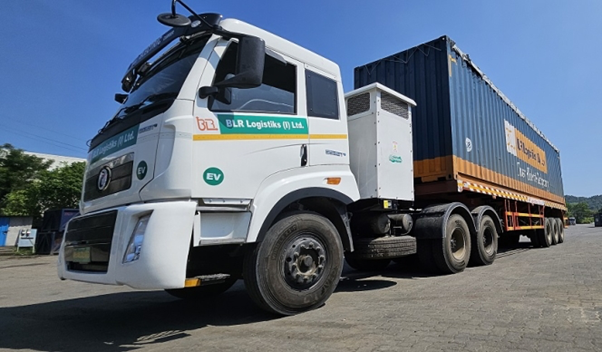In a decisive move toward sustainable logistics, IKEA has become the first company in India to deploy a heavy-duty electric truck for commercial operations. Teaming up with BLR Logistiks, this initiative marks a significant leap—not only for cleaner transportation, but for reshaping the future of freight movement in the country.
The electric truck, now in regular operation on the 120-kilometer Mumbai–Pune corridor, has already completed over 100 successful trips. Its impact has been immediate and far-reaching, displacing two conventional diesel trucks while improving operational efficiency, reducing costs, and significantly cutting emissions.
Setting New Benchmarks
The e-Truck is setting new benchmarks for what’s possible in commercial transport:
- 30% reduction in greenhouse gas emissions, equivalent to avoiding 206 tons of CO₂ emissions each year
- 16% savings in annual transport costs, offering real business value
- 160,000 kilometres of empty hauls eliminated annually, thanks to optimized routing
- Delivery turnaround slashed from two days to one, doubling delivery speed
A Scalable Model for the Future
This move is tightly aligned with IKEA’s global goal of cutting its transport-related carbon emissions by 70% by 2030. More importantly, it provides a live, scalable example for other businesses in India that are navigating the twin pressures of climate responsibility and supply chain efficiency.
By showing that electric heavy-duty vehicles can be both environmentally impactful and financially viable, IKEA is turning aspiration into action.
A Tipping Point for India’s Logistics Sector
IKEA’s pioneering deployment doesn’t just showcase technological innovation—it represents a mindset shift in how businesses can rethink transportation.
As more companies consider transitioning their fleets, IKEA’s success story might just become the blueprint for a cleaner, faster, and more cost-effective logistics future.
Tags: Greenhouse Emissions, IKEA, Logistics, Sustainability, Transportation



Recent Posts
DNV Grants Approval in Principle for New Ammonia Bunkering Vessel Design
Proteus Launches Modular Hydrogen Fuel Cell System for Maritime Sector
Van Oord Unveils Boreas, World’s Largest and Most Sustainable Offshore Wind Installation Vessel
New methanol-fuelled vessel ‘Berlin Maersk’ to enter service
NMPA wins greentech global environment award
CMA CGM in negotiations with Indian shipyards for LNG-powered shipbuilding
L&T to Develop Green Hydrogen and Ammonia Projects in Kandla
Pan Ocean Orders Two Eco-Ready VLCCs from HD Hyundai Heavy Industries